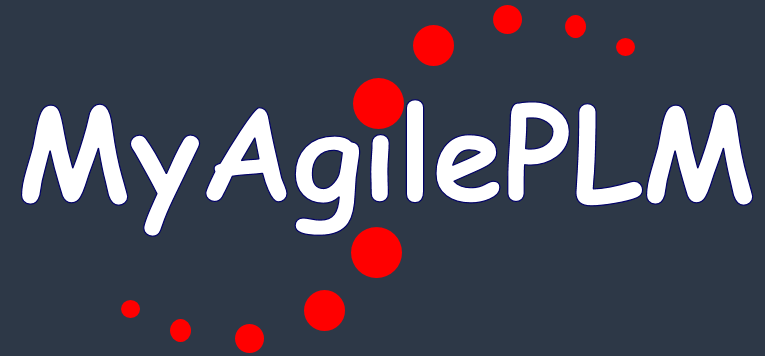Query to fetch BOM upto Nth level
That’s a good one Matt.
However i tried a similar process to find out the Nth Level Item. I have created a procedure which takes your Item Number as input and then gives you BOM Explosion report as the output. If your requirement is similar let me know will share the complete procedure. The procedure is applicable for one as well as multiple input.
Below is my cursor or to say the select statement for generating BOM Explosion. You can give your item number in place of ‘your input item number’ in below SQL and use it.
SELECT ‘your input item Number’ AS PARENT_ITEM,
a.item_number,
LEVEL
FROM AGILE.BOM A
START WITH (A.ITEM = (SELECT DISTINCT i.id
FROM agile.item i, agile.bom b
WHERE i.id = b.item AND i.item_number = ‘your input item Number’)
AND NVL (A.change_out, 0) = 0
AND (SUBSTR (A.flags, 5, 1) = 1)
AND A.id NOT IN (SELECT C.prior_bom
FROM AGILE.bom C
WHERE C.item = A.item))
CONNECT BY PRIOR A.COMPONENT = A.ITEM
AND NVL (A.change_out, 0) = 0
AND (SUBSTR (A.flags, 5, 1) = 1)
AND A.id NOT IN (SELECT B.prior_bom
FROM AGILE.bom B
WHERE B.item = A.item);
Regards,
Arif
Hi Raju,
You can connect Item and BOM table for Level-1 bom output and then use hierarchical query concept to extend it to all levels of BOM. I was able to achieve an output similar to BOM explosion report using the same concept.
Regards,
Arif
Try this. I can’t take credit for this since our DBA found it after picking up this SQL query being passed from the Agile application to Oracle database (as we were diagnosing an earlier issue). I later figured out that this is a BOM explosion report. Use the current change ID or most recently released Change ID for the ? variable.
SELECT DISTINCT a.id,
item_number,
find_number,
change_in,
change_out
FROM bom a
START WITH ( a.item IN (SELECT DISTINCT item
FROM rev
WHERE CHANGE = ?
AND item > 0)
AND Nvl (a.change_out, 0) = 0
AND ( Substr (a.flags, 5, 1) = 1
OR a.change_in = ? )
AND a.id NOT IN (SELECT c.prior_bom
FROM bom c
WHERE c.change_in = ?) )
CONNECT BY PRIOR a.component = a.item
AND Nvl (a.change_out, 0) = 0
AND ( Substr (a.flags, 5, 1) = 1
OR a.change_in = ? )
ORDER BY To_number(find_number)
Raju,
I’ve expanded on Arif’s answer just a little. I would add the DISTINCT keyword (as Matt did). This will prevent duplicate records, which may happen especially if your company makes use of sites. If your BOMs can vary between one site and the next, then you may even want to specify which site in the WHERE clause.
If you also want your BOMs to be ordered in a way that is similar to how Agile might show an exploded BOM, then you may want to add a “path” that properly connects your find numbers. Note that Matt used an ORDER BY statement which orders the exploded BOM numerically. That’s fine as long as there is no duplication of numbers in your sub-assemblies. If there are, all of the 1’s will come first, followed by the 2’s, etc. At our company we use find numbers up to 4 digits long. In order to create a proper sort path, I must pad the find numbers with zeros. See my query below. Hopefully it will make sense.
Regards,
Steve
SELECT distinct :assembly AS PARENT_ITEM,
a.item_number,
LEVEL, A.FIND_NUMBER
,SYS_CONNECT_BY_PATH(LPAD(A.FIND_NUMBER,4,’0′), ‘|’) ITEM_PATH
FROM AGILE.BOM A
START WITH (A.ITEM = (SELECT DISTINCT i.id
FROM agile.item i, agile.bom b
WHERE i.id = b.item AND i.item_number = :assembly)
AND NVL (A.change_out, 0) = 0
AND (SUBSTR (A.flags, 5, 1) = 1)
AND A.id NOT IN (SELECT C.prior_bom
FROM AGILE.bom C
WHERE C.item = A.item))
CONNECT BY PRIOR A.COMPONENT = A.ITEM
AND NVL (A.change_out, 0) = 0
AND (SUBSTR (A.flags, 5, 1) = 1)
AND A.id NOT IN (SELECT B.prior_bom
FROM AGILE.bom B
WHERE B.item = A.item)
ORDER BY ITEM_PATH;
That’s right Steve. Thanks for adding the perspective, makes more sense while going to use it. We should use distinct as the BOMs can be common across the level. In my actual business case i used it same way. Also that’s helpful if you intend to generate the similar report for bulk items.
Hi Steve,
first thank you very much for the query below, I am looking to run it for a list of BOMs… how can I do that? the way it is now, I can only pass in 1 BOM at a time.
SELECT distinct :assembly AS PARENT_ITEM,
a.item_number,
LEVEL, A.FIND_NUMBER
,SYS_CONNECT_BY_PATH(LPAD(A.FIND_NUMBER,4,’0′), ‘|’) ITEM_PATH
FROM AGILE.BOM A
START WITH (A.ITEM = (SELECT DISTINCT i.id
FROM agile.item i, agile.bom b
WHERE i.id = b.item AND i.item_number = :assembly)
AND NVL (A.change_out, 0) = 0
AND (SUBSTR (A.flags, 5, 1) = 1)
AND A.id NOT IN (SELECT C.prior_bom
FROM AGILE.bom C
WHERE C.item = A.item))
CONNECT BY PRIOR A.COMPONENT = A.ITEM
AND NVL (A.change_out, 0) = 0
AND (SUBSTR (A.flags, 5, 1) = 1)
AND A.id NOT IN (SELECT B.prior_bom
FROM AGILE.bom B
WHERE B.item = A.item)
ORDER BY ITEM_PATH;
